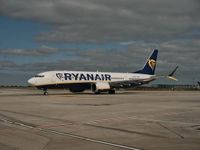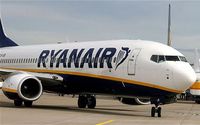The acting CEO of Sarajevo Airport, Sanin Ramezić, has announced that Ryanair is considering stationing one aircraft in Bosnia and Herzegovina's capital and potentially opening a base in the city by 2026. Speaking exclusively to the Klix portal, Ramezić emphasized the significance of eliminating the airport departure tax for the airline's strategic planning. "Ryanair has stated that the elimination of the airport [departure] tax is crucial to its strategic plans, including the establishment of a new base in Sarajevo in 2026," he remarked.
This potential move by Ryanair hinges on the removal of departure taxes across airports in Bosnia and Herzegovina. Currently, the country is set to reintroduce a 1.5 euro tax per departing passenger in just two weeks, a step that raises concerns among aviation stakeholders about its impact on the viability of the newly discussed airline base.
Ramezić argued that launching this base would provide significant benefits to various sectors, enhancing airport operations, boosting tourism, and generating new job opportunities. He stated, "In a joint effort with other airports, we have proposed the suspension of this tax in 2025. This initiative aims to maintain the competitiveness of all airports in the country, laying the groundwork for sustained growth in both the transport and tourism industries, which are pivotal to the economic development of any nation."
Ryanair recently expressed its stance on the matter, with statements urging the urgent abolishment of taxes to facilitate deeper discussions about establishing a base in Sarajevo. The airline's leadership has pointed out that taxation will ultimately shape their resource allocation decisions.
Ryanair's Chief Commercial Officer, Jason McGuinness, voiced his apprehensions regarding the reintroduction of taxes over the region's aviation operations. "I’m a bit concerned about the reintroduction of taxes here in Bosnia and Herzegovina. The development that was discussed for Sarajevo will not be possible if that decision stands," he said, stressing the competitive disadvantages this brings for Sarajevo compared to other regions without such imposts.
In light of these tax implications, Ryanair has planned to introduce five new routes from Sarajevo this summer season, which would effectively double its operations, bringing the total to eleven routes. This expansion is estimated to generate over 400,000 passengers annually from the city, demonstrating the significant economic potential that the new base could tap into.
However, the looming tax reintroduction poses a challenge to these plans. McGuinness pointed out that airports like Dubrovnik and Zadar, both of which have no such taxes, represent more favorable locations for their aircraft. "When we look at how we allocate resources, we deploy them where our costs are the lowest. I think this airport [Sarajevo] wants to be competitive, but it is at a disadvantage compared to other places where there are no taxes. That is the main drawback. For example, Hungary has abolished aviation taxes. Why would we base an aircraft here if we can base it in Budapest?"
As the clock ticks down to the tax reintroduction in Bosnia and Herzegovina, the situation remains tense. The potential establishment of a Ryanair base in Sarajevo not only depends on tax policy adjustments but also on the broader vision for the region's economic future.
The decisions made in the upcoming weeks will have lasting impacts on the aviation landscape in Bosnia and Herzegovina, affecting not just Ryanair but the connectivity and economic viability of Sarajevo Airport as a prominent international hub.
In conclusion, the ongoing discussions and regulatory environments surrounding aviation taxation could redefine the future trajectory of Sarajevo's travel industry. As stakeholders await further developments, the importance of bolstering local economies through tourism and transport cannot be overstated, particularly in a region keen to establish its place in the competitive European market.


